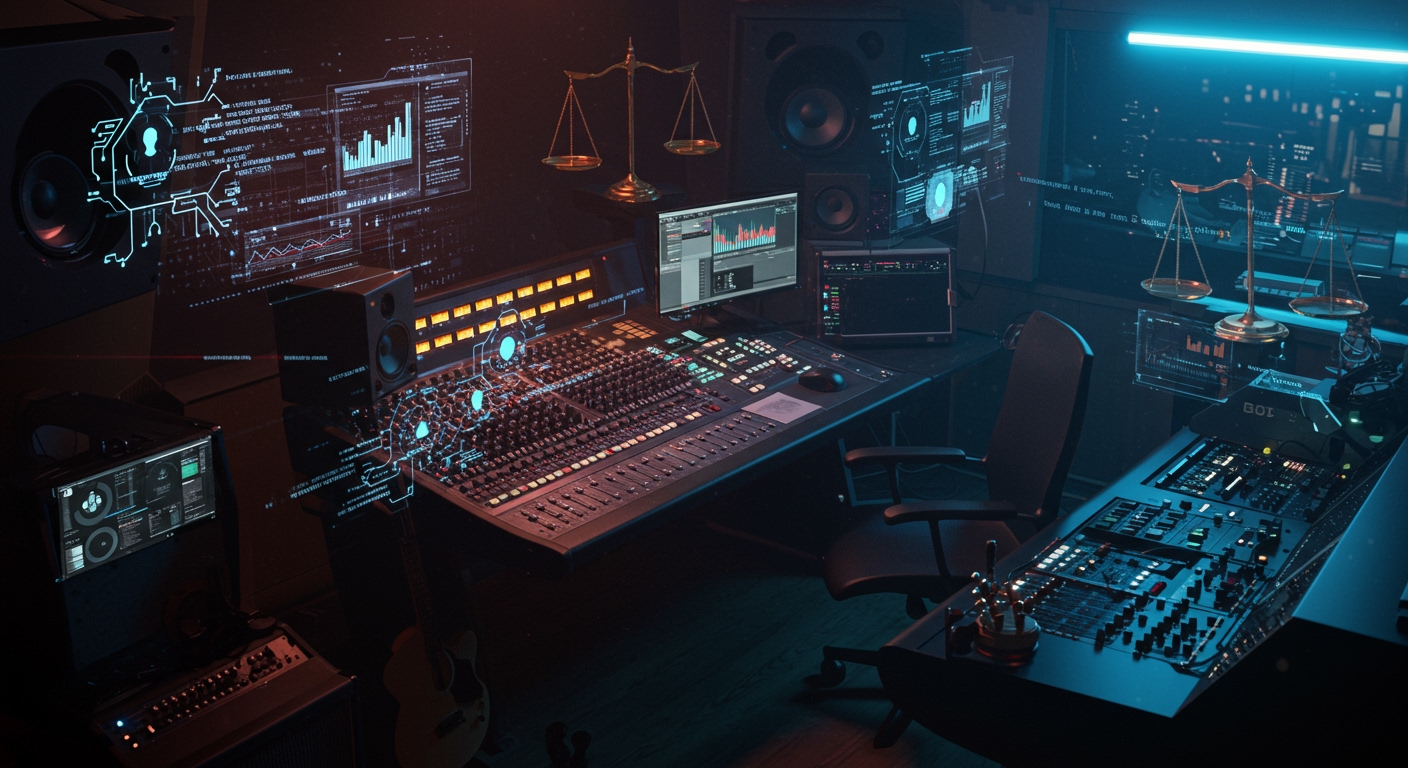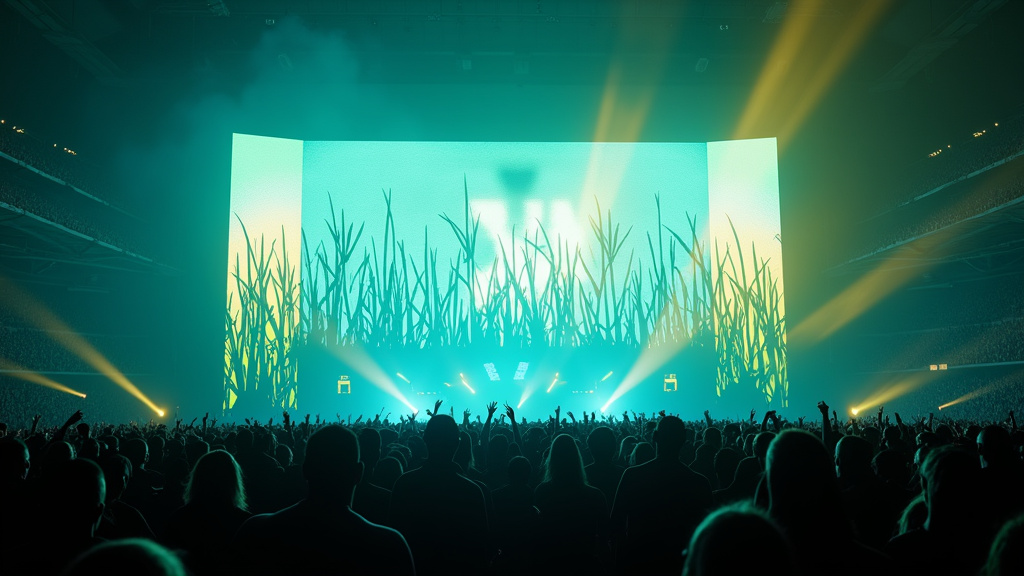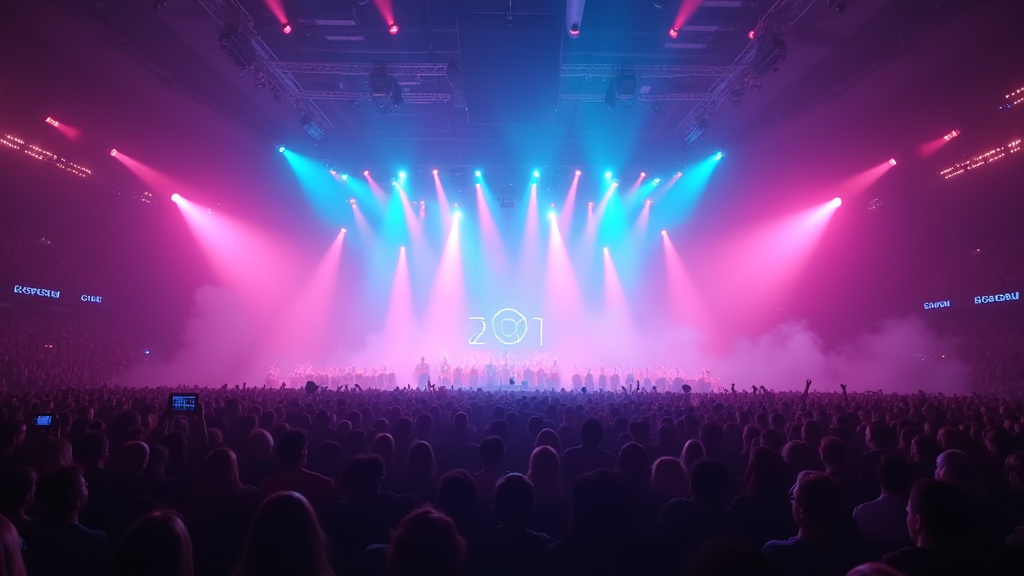The Rise of AI in Music
The year 2025 marks a pivotal moment in the music industry, characterized by the explosive growth and contentious integration of artificial intelligence. AI-generated music has rapidly moved from a theoretical concept to a tangible force, shaking the foundations of how music is created, distributed, and compensated. The debate is no longer if AI will impact music, but how its proliferation can be managed amidst complex legal, ethical, and creative challenges.
The surge in AI’s prominence became impossible to ignore throughout 2024 and into 2025, fueled in part by viral “deepfake” songs that showcased the technology’s capabilities and the inherent risks. A prime example was the track “Heart on My Sleeve,” an AI-generated song designed to mimic a duet between acclaimed artists Drake and The Weeknd. This single piece of music, despite not featuring the actual artists, quickly garnered millions of streams across various platforms, highlighting the widespread public interest and the ease with which compelling, albeit unauthorized, content could be created. The track’s viral success led to a swift response from Universal Music Group (UMG), one of the world’s largest music corporations, which demanded its removal.
The Legal Battleground Takes Shape
The emergence of such viral content underscored fundamental issues surrounding copyright and intellectual property in the age of AI. In response to these developments and what they described as rampant unauthorized use of protected works, the Recording Industry Association of America (RIAA) and the music industry’s influential “Big Three” labels – Universal Music Group (UMG), Sony, and Warner – took decisive legal action. In June 2024, these entities jointly filed lawsuits against prominent AI music startups Suno and Udio.
The core allegation leveled against Suno and Udio in these lawsuits is one of “en masse” copyright infringement. The music companies contend that these AI models were trained extensively on vast libraries of copyrighted sound recordings without proper licenses or authorization. Ken Doroshow, the RIAA’s chief legal officer, articulated the industry’s position, describing the process of training these AI models as “unlicensed copying of sound recordings on a massive scale.” The lawsuits seek significant damages, potentially reaching up to $150,000 per infringed work, a figure that reflects the perceived scale and severity of the alleged violations.
Exploring Integration and New Models
Simultaneously, while legal battles unfold, significant efforts are underway by both technology companies and music firms to explore responsible AI integration. These initiatives aim to harness AI’s potential while establishing frameworks that respect creators’ rights and interests.
Google, for instance, opened public access to its text-to-music system, MusicLM, via its AI Test Kitchen in mid-2023. Recognizing the sensitivities involved, Google implemented safeguards within the system and has engaged in collaboration with musicians to understand their perspectives and needs. This step signaled a commitment from major tech players to make AI music generation tools accessible while attempting to address potential concerns proactively.
Adding another layer to the evolving landscape, Universal Music Group, while engaged in litigation, has also been in discussions with Google regarding potential licensing agreements. These talks explore the possibility of licensing artist voices for use in fan-created AI songs. The potential outcome of these negotiations could be the development of an opt-in “AI Song” tool. Such a tool is envisioned to allow fans to use licensed voices under controlled conditions, importantly, with a mechanism in place to compensate rights holders for the use of the underlying intellectual property and artist likenesses.
The Future Landscape: Licensing and Platforms
As the industry navigates these complex issues, the focus by mid-2025 is shifting towards potential resolution and the establishment of new operating models. Record companies are reportedly considering settlement deals with the very startups they sued, Udio and Suno. These potential settlements would likely involve comprehensive licensing agreements, granting the AI companies access to the labels’ extensive music catalogs for training data or output generation under negotiated terms.
Music streaming platforms, central to music consumption, are also defining their stance on AI-generated content. Gustav Söderström, co-president of Spotify, has indicated that the platform intends to “welcome” AI-generated music, provided it is produced legally and adheres to copyright regulations. Spotify views AI not merely as a source of conflict but as a powerful tool capable of enhancing creativity for artists and lowering production barriers for aspiring musicians, suggesting a future where AI-assisted creation coexists with traditional methods.
A Defining Moment for the Industry
By mid-2025, the music industry finds itself at a critical juncture. The period is characterized by intense experimentation with AI technology, high-stakes legal negotiation between rights holders and tech developers, and fervent public and internal debate. Key areas of contention remain the legal and ethical implications of AI’s use, particularly concerning how artists are compensated for their work used in AI training and generation, and the critical need for explicit consent when their voices or styles are replicated. The outcomes of the current lawsuits, licensing discussions, and technological advancements in the coming months will undoubtedly shape the sound, structure, and economics of the music world for years to come.





